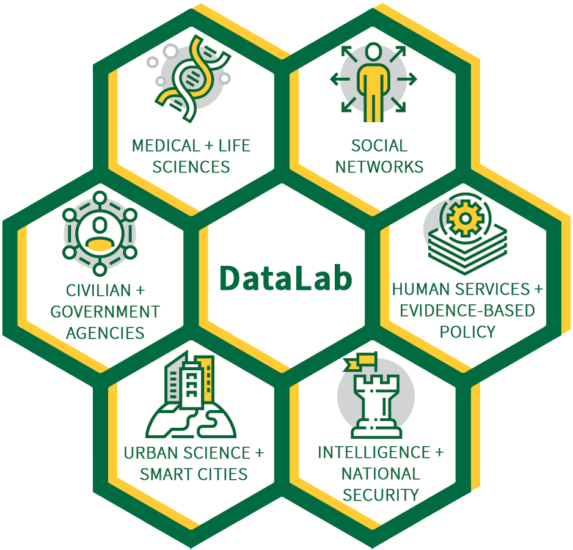
Medical & Life Sciences
- Applying data mining techniques in genome study data to discover biomarkers
- Curating and integrating patients’ records to improve the picture physicians have about their patients
- Combining smart sensor data and passive monitoring to help doctors monitor patients’ health and detect anomalies
Civilian and Government Agencies
- Analyzing and mining litigation documents for advanced pattern matching and automated categorization of legal documents
- Connecting vehicle information with data about the environment (e.g., weather, traffic) to provide drivers with real-time alerts
- Mining demographics to improve services in counties
Intelligence and Organized Crime
- Analyzing, mining and visualizing data to predict and prevent crime
- Simulating data scenarios to test, evaluate, predict and prevent human trafficking
Social Net Analysis
- Collecting and analyzing digital data to improve our understanding of individuals, organizations, and societies
- Collecting and analyzing digital data to predict emerging situations, such as a disease outbreak
Urban Science, Smart Cities and Transportation
- Improving traffic in Metropolitan areas
- Storing, combining and analyzing city data to inform individual users to promote sustainability, safety, and health
- Creating simulations to test and evaluate social phenomena
Human Services and Evidence-based Policy
- Modeling, analyzing and predicting networks of people and activities invited in human trafficking
- Making decisions based on data-informed actions
- Studying policy to recommend changes, prevent and respond
